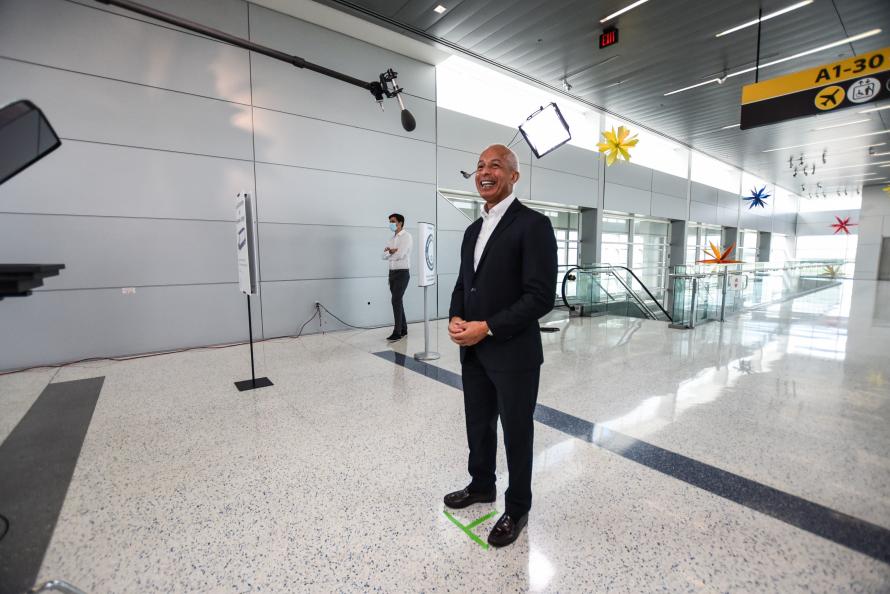With the travel industry impacted by one of the world’s most serious global crises, Houston Aviation Director Mario Diaz outlined where Houston Airports is headed and the plans in place to overcome the challenging times.
The event explored how the airport system is adapting to major shifts in the industry due to COVID-19, how the pandemic is accelerating new biometric technologies and how the region is staying competitive in the bid for Space Command.
Diaz set the tone early on for the audience.
“What you are about to hear is not a story of suffering, misfortune or pity,” Diaz said. “It’s our story of overcoming, never giving up, finding hope in the smallest victories and emerging resilient, perhaps even better than we ever were.”
Prior to the COVID-19 pandemic, Houston Airports was thriving and expected to reach record-setting passenger numbers. Ethiopian Airlines had just begun service in the Houston market. United Airlines had recently opened a $200 million technical operations center at George Bush Intercontinental Airport, IAH, that now supports 2,000 engineering and maintenance employees. Southwest Airlines had just opened its largest maintenance complex at William P. Hobby Airport, HOU. Additionally, Hobby Airport became the first airport in Texas to have a biometric boarding and arrival for passengers on international flights. These achievements and accomplishments positioned Hobby Airport in becoming an airport of the future.
Then the worst pandemic of this generation hit and crippled the aviation industry. Houston Airports saw traffic fall 95 percent in April over 2019.
However, with a good financial foundation and an innovative approach to the challenges surrounding a world pandemic, Diaz detailed that Houston Airports is seeing a travel rebound with several airlines restarting and increasing flight frequency after seeing as much as a 90 percent travel decline in March 2020. FlySafe Houston, a commitment to implementing several safety enhancements from touchless experiences to increased cleanings in line with CDC standards, was quickly implemented. In addition, both airports shined once again at the 2020 Skytrax World Airport Awards by earning a long list of honors in various categories including World’s Top 100 Airports, Best Airport Dining, Best Airport Staff, and World’s Best Website and Digital Services. Houston remains the only city in the Western Hemisphere to have two four-star Skytrax rated airports.
A recap is available here: https://www.houston.org/news/houston-airports-aviation-director-reflects-adapting-2020-challenges
